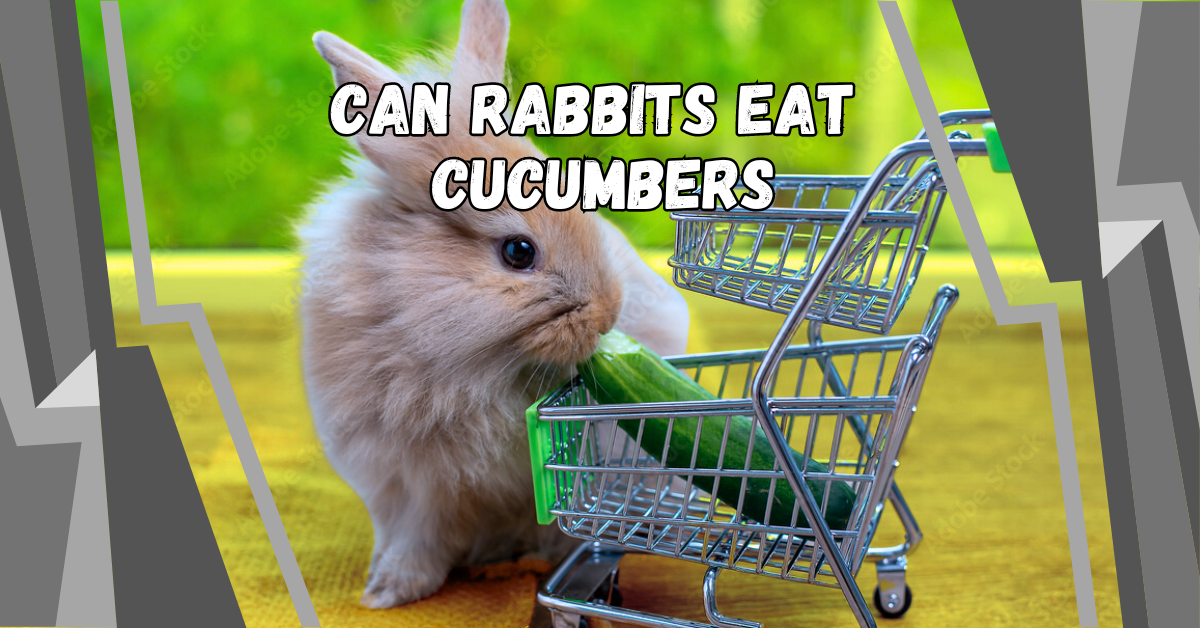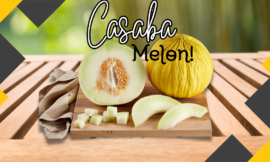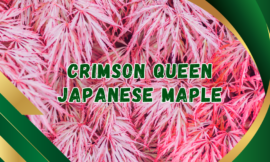When it comes to feeding your pet rabbit, many owners wonder about safe and healthy food options. One of the common questions is: can rabbits eat cucumbers? The answer is yes, rabbits can safely eat cucumbers as part of a well-balanced diet. However, like any treat, cucumbers should be given in moderation. In this post, we’ll explore seven reasons why cucumbers are a great addition to your rabbit’s diet, how to feed them properly, and how much cucumber is safe to give. Plus, we’ll discuss the nutritional benefits, risks, and tips on portion control to ensure your rabbit stays happy and healthy.
Can Rabbits Eat Cucumbers? Understanding Their Diet
Rabbits are herbivores, meaning their diet consists mainly of plant materials. Their primary food should always be fresh hay, which helps with digestion and keeps their teeth healthy. However, rabbits also enjoy a variety of vegetables and leafy greens, which provide important nutrients and variety. So, can rabbits eat cucumbers? Absolutely!
Cucumbers are made up of about 95% water, which makes them a refreshing snack, especially during warmer months. They’re low in calories and provide a little extra hydration to your rabbit’s diet. Still, cucumbers should only be given as an occasional treat and not as a primary food source. Too much cucumber can lead to digestive issues due to its high water content, which may upset your rabbit’s delicate stomach.
Nutritional Benefits of Cucumbers for Rabbits
Cucumbers offer several nutritional benefits that make them a healthy snack for your rabbit, but it’s important to note that they should be part of a balanced diet. Here’s what cucumbers provide:
- Hydration: Since cucumbers are mostly water, they help keep your rabbit hydrated, especially during hot weather.
- Low-Calorie Snack: Cucumbers are low in calories, making them a safe option for rabbits who are prone to gaining weight.
- Vitamin C: Although rabbits can synthesize their own vitamin C, cucumbers provide a little extra, which helps support immune function.
- Fiber: Cucumbers have a small amount of fiber, which is important for rabbit digestion. While hay should be the main source of fiber, cucumbers can contribute to a well-rounded diet.
However, cucumbers don’t offer as many nutrients as other vegetables, so it’s important to provide your rabbit with a variety of veggies alongside cucumbers to meet all their nutritional needs.
How to Feed Cucumbers to Rabbits: A Step-by-Step Guide
If you decide to introduce cucumbers into your rabbit’s diet, it’s important to do so in a safe and controlled way. Here’s a step-by-step guide to ensure your rabbit enjoys cucumbers without any health issues:
- Wash Thoroughly: Always wash cucumbers thoroughly to remove any pesticides or chemicals from the skin, especially if they are not organic.
- Peel or Leave the Skin On: You can leave the cucumber skin on, as it contains extra fiber, but make sure it’s washed well. If your rabbit seems to dislike the peel or has difficulty digesting it, you can remove it.
- Slice Thinly: Cut the cucumber into thin slices or small cubes. This makes it easier for your rabbit to chew and reduces the risk of choking.
- Start Small: When offering cucumbers for the first time, start with a small piece to ensure your rabbit tolerates it well. Monitor them for any digestive issues such as diarrhea or soft stools.
- Serve as a Treat: Give cucumbers as an occasional treat, not as a primary food source. A few slices once or twice a week is enough.
- Remove Uneaten Portions: If your rabbit doesn’t eat the cucumber right away, remove it after a couple of hours to avoid spoilage and attracting pests.
By following these steps, you can safely introduce cucumbers into your rabbit’s diet.
How Much Cucumber Can Rabbits Eat? Portion Control Tips
While cucumbers are a healthy treat for rabbits, it’s important to practice portion control to avoid overfeeding. Due to their high water content, feeding too much cucumber can lead to digestive upset, including diarrhea or bloating. Here are some tips on how much cucumber to offer:
- Start Small: Begin with just one or two slices (about 1-inch in size) and observe your rabbit’s reaction. If they tolerate it well, you can offer this amount once or twice a week.
- Limit Quantity: A safe rule of thumb is to keep cucumbers as no more than 10% of your rabbit’s vegetable intake. Hay should still make up about 80% of their diet, with leafy greens and other vegetables making up the rest.
- Monitor Their Reaction: If your rabbit shows signs of digestive discomfort after eating cucumbers, reduce the amount or remove it from their diet altogether.
By keeping cucumber portions small and occasional, you’ll ensure your rabbit enjoys the benefits without any adverse effects.
Are Cucumbers Healthy for Rabbits? Understanding the Risks and Benefits
Like all foods, cucumbers have both benefits and potential risks for rabbits. Understanding these can help you make informed decisions about including cucumbers in your rabbit’s diet.
Benefits:
- Hydration: Cucumbers provide extra hydration, which is especially helpful during hot weather.
- Low-Calorie: They’re a low-calorie option that won’t contribute to weight gain.
- Tasty Treat: Many rabbits enjoy the crunchy texture of cucumbers, making them a tasty, healthy snack when given in moderation.
Risks:
- High Water Content: Cucumbers are mostly water, which can cause digestive upset like diarrhea if given in large amounts.
- Low Nutritional Value: Compared to other vegetables like leafy greens, cucumbers don’t offer many essential nutrients. Over-relying on them could result in nutritional imbalances.
In moderation, cucumbers are a healthy and safe option for rabbits. However, they shouldn’t replace more nutrient-dense vegetables in your rabbit’s regular diet.
Can Rabbits Eat Cucumber Peel and Seeds? What You Should Know
One common question rabbit owners ask is whether cucumber peel and seeds are safe for their pets. The good news is that rabbits can eat cucumber peels and seeds, but there are a few things to keep in mind.
- Cucumber Peel: The peel is completely safe for rabbits to eat and actually contains extra fiber, which is good for their digestion. However, because it’s often sprayed with pesticides, always wash the peel thoroughly or choose organic cucumbers to avoid any harmful chemicals.
- Cucumber Seeds: The seeds of cucumbers are small and soft, making them easy for rabbits to eat. Unlike seeds from some fruits, cucumber seeds do not pose a choking hazard or digestive problem for rabbits.
In summary, both the peel and seeds of cucumbers are safe for rabbits, as long as you wash the vegetable well and offer it in moderation.
Best Vegetables for Rabbits: Adding Variety to Their Diet
While cucumbers can be a tasty addition to your rabbit’s diet, it’s important to offer a variety of vegetables to ensure they get all the nutrients they need. Here are some of the best vegetables for rabbits that you can offer alongside cucumbers:
- Leafy Greens: Vegetables like romaine lettuce, kale, and spinach are rich in vitamins and provide important fiber for digestion. These should be a staple in your rabbit’s daily vegetable intake.
- Carrots: While carrots are often associated with rabbits, they should be given sparingly because they are high in sugar. However, they’re a tasty treat in small amounts.
- Bell Peppers: These are another excellent choice for rabbits, offering a good amount of vitamin C and a sweet taste without too many calories.
- Broccoli: Rich in fiber, broccoli helps promote healthy digestion, but it should be given in moderation because it can cause gas.
- Herbs: Fresh herbs like parsley, cilantro, and basil are fragrant, flavorful, and offer a nice variety for your rabbit’s diet.
By incorporating a mix of vegetables like cucumbers, leafy greens, and herbs, you can provide your rabbit with a balanced and nutritious diet.
For more exciting blogs, visit our homepage Magzineco.
Frequently Asked Questions About Rabbits Eating Cucumbers
- Can rabbits eat cucumbers every day?
No, cucumbers should be given as an occasional treat rather than a daily food. Feeding cucumbers once or twice a week is ideal to avoid digestive issues. - Are cucumbers safe for baby rabbits?
Baby rabbits have more sensitive digestive systems, so it’s best to avoid giving them cucumbers until they are at least 12 weeks old. Start with small amounts once they’re older. - Can rabbits eat cucumber seeds?
Yes, cucumber seeds are soft and safe for rabbits to eat. They pose no choking hazard and can be included when feeding cucumber slices. - Can rabbits eat cucumber peel?
Yes, the peel is safe for rabbits, but it’s important to wash it thoroughly to remove any pesticides. Organic cucumbers are a good option if you’re concerned about chemicals. - How much cucumber can I give my rabbit?
Start with one or two slices of cucumber and limit it to no more than twice a week. Make sure cucumbers only make up about 10% of your rabbit’s vegetable intake. - Can cucumbers upset my rabbit’s stomach?
Yes, if given in large quantities, cucumbers can cause digestive upset due to their high water content. Always give cucumbers in moderation. - Are cucumbers a good source of nutrients for rabbits?
While cucumbers provide hydration and a few nutrients, they are not as nutrient-dense as other vegetables like leafy greens. They should be treated as a supplemental treat rather than a primary food source. - What vegetables are best for rabbits?
Leafy greens like romaine lettuce, kale, and spinach are excellent choices for rabbits, as well as herbs like parsley and cilantro. - Can cucumbers help keep my rabbit hydrated?
Yes, since cucumbers are mostly water, they can help keep your rabbit hydrated, especially during warmer months. - Should I peel cucumbers before giving them to my rabbit?
You can leave the peel on as long as it is thoroughly washed. The peel contains fiber, which is beneficial for your rabbit’s digestion.
Conclusion
In conclusion, cucumbers can be a delightful and hydrating treat for your rabbit when given in moderation. Their high water content makes them an excellent choice for keeping your furry friend cool and hydrated, especially during the warmer months. However, it’s essential to remember that cucumbers should complement a well-rounded diet primarily based on hay and a variety of nutrient-rich vegetables. By following the guidelines for portion control and preparation, you can safely incorporate cucumbers into your rabbit’s diet, enhancing their overall health and happiness. Always observe your rabbit’s reaction to new foods and consult with your veterinarian if you have any concerns. With the right care, your rabbit can enjoy the benefits of cucumbers while maintaining a balanced and nutritious diet.




